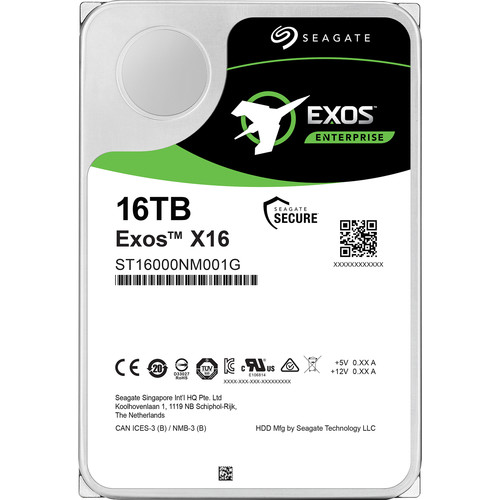
Storage giant Seagate
unveiled two new hard disk drives with a 16TB capacity earlier this year and
for once, it was not all about data centers.
The Exos X16 and the
IronWolf/IronWolf Pro targeted two different audiences (data center for the
first and NAS users for the second) and feature SATA or SAS interface only for
the first one and SATA only for the second model.
Provantage is selling
the Exos (ST16000NM001G) for just over $400 while the IronWolf one
(ST16000VN001) retails for just under $500 from Amazon.
At just over $25 per TB,
this is a fantastic, fantastic deal for those looking for a drive to rule them
all and for once, it doesn't carry any significant premium. Just bear in mind
that 16TB is a lot of data to lose, just make sure you it backup.
Also Read :- Samsung to unveil NEON at CES 2020, teased
to be a human-like AI assistant with support for Hindi
Both have nine platters,
use Helium technology and have a five year warranty (the IronWolf has three);
they also share the s same spinning speed (7200RPM), idle power (5W), average
latency (4.16ms) and cache (256MB).
The Exos range carries a
MTBF (mean time before failures) at 2.5M hours and boasts a higher sustained
transfer rate at 261MBps; the IronWolf Pro and the IronWolf reach 250 and
210MBps respectively. Note that the IronWolf Pro also comes with bundled Rescue
Services, great for data recovery.
- These are the best cloud storage of 2020, great to save
your files online.
- We also compiled the list of best cloud backup services
- It is advisable that you keep a local copy of your
files, so check out our best NAS
Toshiba announced the
16TB MG08 series in January 2019 but we have yet to see any stock in the
channel. Western Digital also shipped its first 16TB hard disk drives as well
but based on MAMR rather than HAMR technology - as used by Seagate.
While SSD prices have
been falling, they are still far more expensive than their hard disk drive
counterparts. At about $2800, Micron’s 9300 Pro is nearly SEVEN times more
expensive although this gap has all but disappeared for sub-1TB capacities.
Comments
Post a Comment